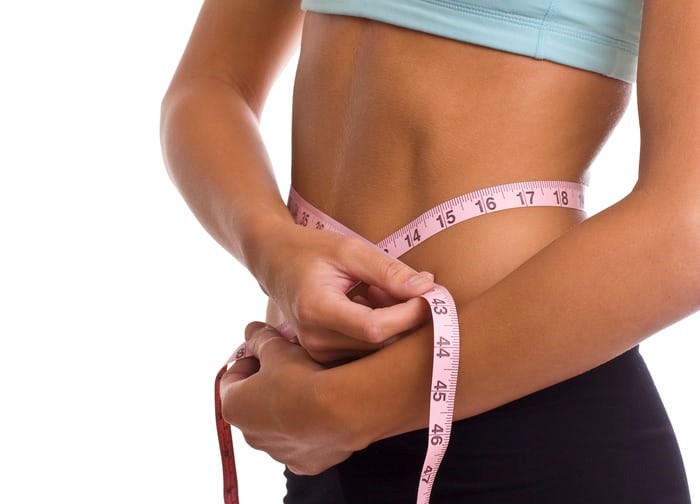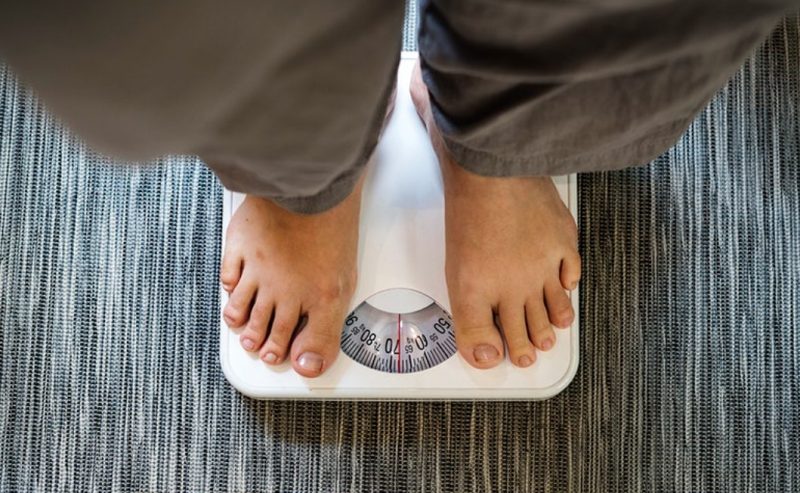If you are looking for a way to lose weight fast, you may be wondering whether it is possible to lose a pound a day.
One pound equals 3500 calories. Therefore, to be able to lose a pound a day, you would have to burn 3500 calories a day. The recommended average daily food intake is 1500 -2500 calories if you are doing regular activities.
As such, keeping your calories below 500 and getting in an intense workout may make it possible to lose a pound a day.
On average, one can burn up to 2000 calories in a day with regular activities and body functions. To lose a pound a day, you would need to not eat at all and do an intense workout that burns at least 1500.
Table of Contents
Best Strategies for Healthy Weight Loss
A simpler and more sustainable approach for fat loss would be to cut down your daily recommended calorie intake by 500 and incorporate a workout that burns about 500 calories.
That way, you would have a 1000 caloric deficit per day, and it would take you up to 4 days to lose a pound.
With that said, it is normal to experience a drastic weight loss within a few days or a week of embarking on a weight loss journey. Most likely, you are losing water weight, and your weight loss will stabilize in the next few weeks.
Also, it is within a healthy range for people with a higher body fat percentage to lose up to 3.5 pounds per week. If you are just getting started on your weight loss journey, it still takes consistency in exercising regularly and eating clean.
Tips for Losing Weight Healthily
Below are some steps you can take to promote weight loss in a healthy manner.
Eat at Calorie Deficit

Ultimately, weight loss results from using more energy than you are consuming. However, the key is to stay within a healthy calorie deficit. Any diet whose daily calorie intake is lower than 800 is known as a crash diet and can have an adverse effect on your health.
Instead, use an online Basal Metabolic Rate (BMR) calculator to determine how many calories you should be consuming at maintenance. Then aim for 500-1000 less in your daily calorie intake.
Some of the most effective ways of achieving a calorie deficit while being adequately nourished include:
- Cut down on sugar and starchy carbohydrates. Both types of foods are calorie-dense and cause a spike in your insulin levels, inhibiting fat loss. They are also low-volume, which requires that you eat in larger amounts to get satisfied.
- Eliminate bad fats and incorporate the good fats. Fats are the most calorie-dense macronutrients. Each gram of fat contains nine calories. Although good fats play a crucial role in the body, such as providing you with a sustained energy supply, you need to be careful to consume healthy, unsaturated fats within your recommended macro composition. Saturated fats increase your bad cholesterol levels, which increases your risk for heart disease.
- Incorporate more vegetables into your food. Vegetables are rich in vital nutrients. They are also low in calories and satiating.
- Incorporate fruits. Like vegetables, fruits are also rich in vital nutrients. However, you need to be keen about the type of fruits you eat and their quantities. Certain fruits such as bananas and mangoes have high sugar levels and should be consumed sparingly.
- Meet your recommended protein intake. Proteins are satiating, which helps to curb your appetite. They also promote muscle building for a strong body and physique.
- Limit your sodium intake. High sodium intake can cause water retention causing bloating, inflammation, or added weight. Put just enough salt in your food or substitute with seasonings such as garlic and black pepper for taste. Also, beware of the hidden sodium in many types of processed foods such as salted snacks and processed meat. Consuming foods that are rich in potassium can also help to flush out the excess sodium.
- Increase your fiber intake. Although the body does not digest fiber, it plays a crucial role in the digestive system. It slows down the rate at which food moves through the digestive system for optimal breakdown. It also feeds the good bacteria in your gut. Besides, fiber has volume that leaves you feeling fuller for longer, therefore curbing appetite and preventing overeating.
Incorporate Exercise

Exercising will not only help to lose weight but also promotes optimal physical, mental, and emotional health. The American Heart Organization recommends 150 minutes of moderate aerobic exercises or 75 minutes of high-intensity aerobic exercise per week for optimal heart health.
In addition, weight loss experts advise that you incorporate some form of strength training in your exercise routine. Strength training will help you to build strength, muscles, and stamina. It also raises your metabolism up to 48 hours post your workout to keep your body burning calories.
Drink an Adequate Amount of Water Daily

Your body needs water for nourishment and to flush out toxins. Besides, failure to take adequate amounts can lead to water retention, which stalls your weight loss progress. In extreme cases, it can lead to dehydration or lethargy. Aim for at least 2L of water daily.
If you exercise a lot, live in a hot environment, consume a high fiber or high-protein diet, you may need to increase your daily water intake.
Keep Your Stress Levels Low
When stressed, your body produces cortisol. High levels of cortisol can signal the body to go into survival mode, which inhibits fat burning.
Are There Risks Associated with Losing a Pound a Day?
Medical professionals recommend a 1-2-pound weight loss per week and not a pound a day. Drastic fat and weight loss can have adverse effects such as:
Slowing down your metabolism. Undoubtedly, you need to significantly reduce your caloric intake or go without eating for extended periods of time to lose a pound a day.
This interferes with the normal functioning of your metabolism over time. It could also cause you to burn fat less efficiently. Studies show that consuming very few calories per day can reduce fat burn by up to 23% due to loss in muscles and reduction in thyroid-regulating hormones.
Muscle loss. Aside from losing water weight and fat, you will also lose muscle or slow down muscle development and bone density, resulting in loss of strength. If you are on a crash diet, you may not be able to take in enough vitamin D and calcium, which can cause brittle bones and muscle loss.
Lowered immunity. If you are on a low-calorie diet, it may be difficult to get enough vital minerals in your meals. As a result, your immunity may be compromised, exposing you to a higher risk of diseases.
Malnutrition. You are at risk for nutritional deficiency if your caloric intake is significantly reduced. The deficiency can lead to hair loss, extreme fatigue, and brittle bones, among other health conditions.
Low energy and mood swings. Hunger, dehydration, and fatigue from excessive exercising can cause you to be irritable.
Binging. For most people, extreme weight loss measures are not sustainable. You are likely to give up along the way and end up eating everything you have been avoiding – often at a calorie surplus. Eventually, you may gain back all the weight you had lost.
Injuries. Most people seeking to lose weight do long workouts while consuming a crash diet. Over-exercising can lead to injuries and nervous fatigue.
Gallstones. Gallstone prevalence among people who lose weight too fast is 12-25 out of 100. When eating at an extreme caloric deficit, the gall bladder lowers how much digestive juice it releases. This causes an accumulation of juices, which stick together to form stone-like substances on the gall bladder.
What Could Be the Cause of My Unexpected Drastic Weight Loss?

Although some people take extreme measures to lose weight fast, for other people, this happens unintentionally. In most cases, there is an underlying factor that is causing the severe weight loss, such as:
- Stress
- Failure to meet your recommended daily calorie intake
- Gastrointestinal diseases
- Endocrine disorders
- Hyperthyroidism
- Autoimmune disease
- Aging
- Cancer
- Neurological illness
If you notice a sudden decline in your body weight, consult a doctor immediately.
Final Thoughts
Although it is possible to lose a pound a day with extreme measures, it can be counterproductive. Yes, you may get to your goal weight fast, but it is likely to be harder than it needs to be, and you may develop health issues such as low metabolism, malnutrition, and brittle bones.
Also, since such extreme strategies are not sustainable, you are likely to regain all the weight within a short time. It is best to stick to a method that enables you to lose weight steadily and healthily.





